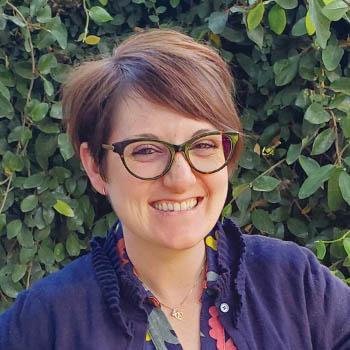
Andrew Hagopian
Editor
As I sat in Dr. Amila Becirbegovic’s Humanities 120 “Genocide, Memory, Media” class at Fresno State, there was a familiarity about the topic which was being taught. The more I listened to what the professor had to say and what my peers said in response, the more I appreciated the importance of the class.
The Armenian Genocide of 1915 provides crucial perspective and is a discussion point in Dr. Becirbegovic’s class. It may be common to discuss the Armenian Genocide in an Armenian Studies class at Fresno State but to have it recognized and acknowledged in another department was exciting. Learning about the Armenian Genocide from the viewpoint of a survivor of the Bosnian Genocide gave me a whole new outlook on the subject when comparing and contrasting the events of the Armenian Genocide to other genocides of the 20th century.
Dr. Becirbegovic, professor of German and Ethnic Humanities in the Department of Modern and Classical Languages and Literatures, finds an importance in studying genocide and educating future generations on the topic in order to prevent such tragic acts against humanity.
Dr. Becirbegovic was originally from Prijedor, Bosnia, which is a small city with gorgeous landscapes and great fishing, situated between the picturesque Sana River and the majestic Kozara mountains. She was born and raised in Prijedor until the 1992 genocide when she and her family were forced to flee to Germany.
“As we watched our home attacked by Serb paramilitary forces, neighbors, friends and family began to disappear or were taken to nearby concentration camps,” said Prof. Becirbegovic who considers it “the worst genocide Europe had seen since the Holocaust.”
Her experiences led Dr. Becirbegovic into a career in academics. She is a Germanist with an emphasis in Critical Theory and Human Rights, and she works at the intersection of literature, genocide studies and visual culture. Her personal experiences as a Bosnian refugee in Germany gave her a unique perspective and have deeply shaped her academic interests. This led her down a path of exploration within the humanities, focusing specifically on representations of genocide and the important role that images play in affecting genocide memory. Her research seeks to “investigate what genocide representations look like today and what potential these renditions play in international intervention and atrocity remembrance.”
Although Dr. Becirbegovic was aware of Ottoman History while growing up, she only began to seriously grapple with modern genocide history when she investigated connections between the Armenian Genocide and other case histories. It was at the University of California, Davis where she began teaching courses about the Armenian Genocide and the Holocaust and developed lesson plans and outreach material that addressed the need to acknowledge the Armenian Genocide alongside other cases, such as Bosnia and Rwanda.
“I feel that I have a unique entry point into other genocide case histories and am able to relate on a personal level to the hardships and atrocities that others have experienced,” said Dr. Becirbegovic. “It is empowering to see other survivors, who strive for justice and peace and I find solidarity in their work. I have learned a great deal from Armenians in the Central Valley and appreciate their stories and perspectives. I think we share many commonalities, though every case and history is different, there is a shared experience and a sort of kinship.”
According to Dr. Becirbegovic, media is “powerful and unavoidable in our time, particularly visual media… Contemporary media can bring a lot of awareness to a genocide case, like it initially did for Bosnia, but media, usually motivated by political or economic ties, can also skew the other way and deny, gloss over or neglect to give all of the facts. Unfortunately, the last stage of genocide is the silent continuation of the genocide, a perpetual double killing.”
The Humanities 120 class teaches the importance of becoming global citizens, as it may someday save lives. Dr. Becirbegovic’s course emphasizes historical awareness and ways that students can make an impact.
Dr. Becirbegovic’s class is highly recommended for any student who would like to learn more about Genocide, its inner workings, its perpetrators, and the politics surrounding it.
 Hye Sharzhoom Armenian Action
Hye Sharzhoom Armenian Action